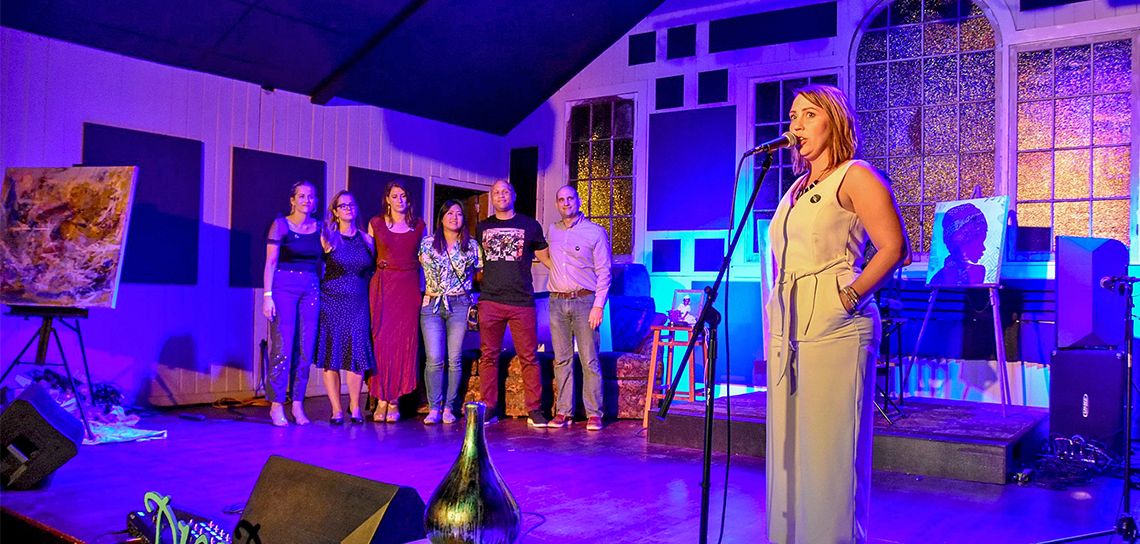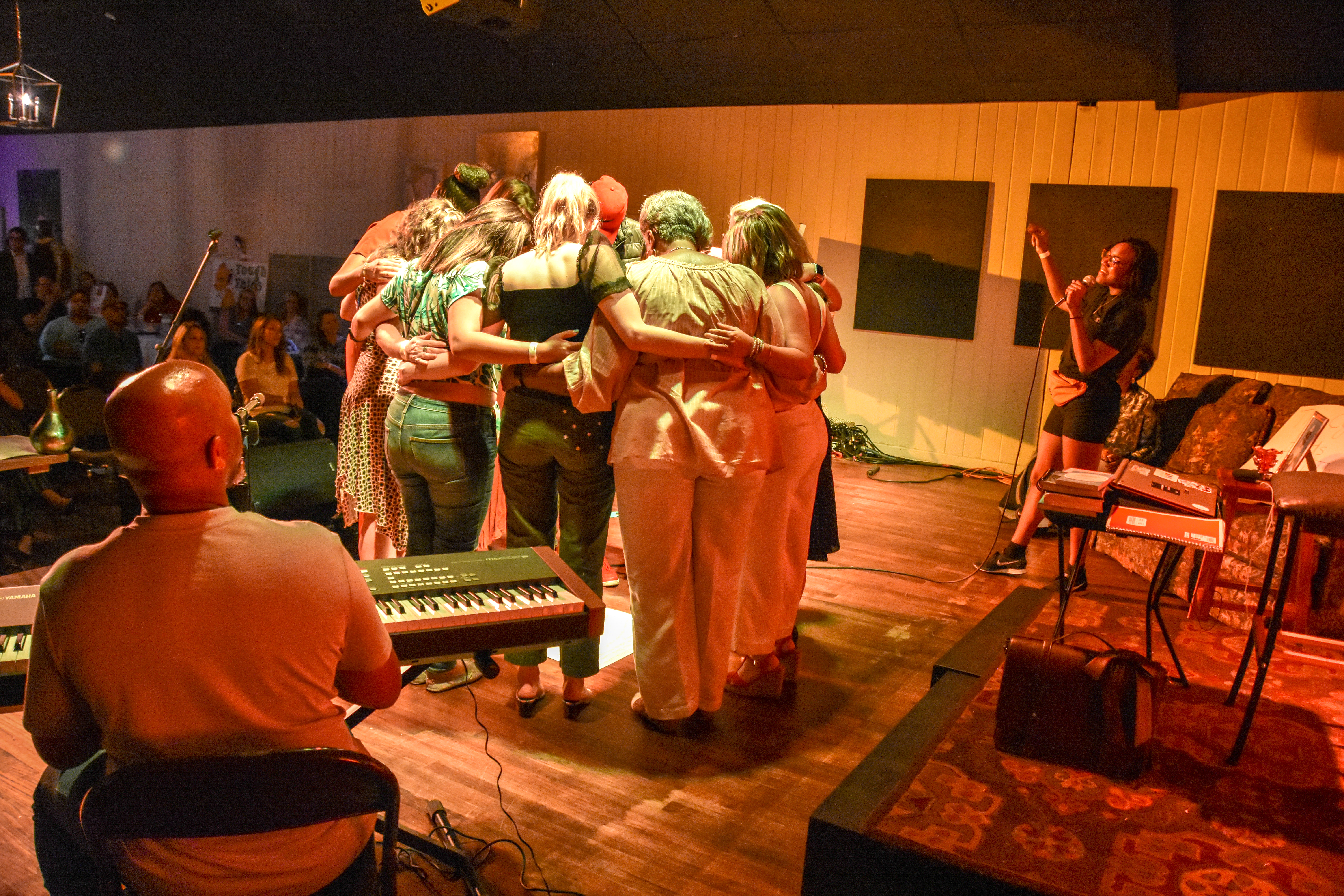
Giving back: You Aren’t Alone Project
As much as social media conceals, it also reveals. Behind expertly edited photos, when people take to their feeds, they share pieces of themselves with their friends, family and audience, even if it is only slight. Usually, these digitally catalogued moments depict joyous times: weddings, anniversaries, holidays, birthdays. However, it’s no secret that there’s much more going on behind the scenes. Chelsea Borruano’s goal is to bring that to light.
Amidst a feed of Photoshopped smiles and filtered backgrounds, the business development director with MESH posted about her struggles with mental health and her continued journey to happiness. “The response was crazy,” she explains. “So many people thanked me for making them not feel alone. It made me realize how many people aren’t getting the help they need.”
While May is Mental Health Awareness Month, this year the topic carries even more weight, as COVID-19 has taken hold of normal life. With people living in nearly constant fear and anxiety about not only contracting or spreading the virus but also the fate of their jobs and futures, Borruano says it’s never been more important to reach out and support one another.
She founded the You Aren’t Alone Project last year with an event that now seems far from conceivable under social distancing guidelines. Inviting artists of all disciplines to share their mental health journeys through paint, dance, poetry and more, the July 2019 exhibition was a wake-up call for awareness in the local area.

“People starting talking about how Baton Rouge was missing something like this,” Borruano explains of the organization’s mental health focus. “That’s when I decided this needed to be something more.”
The You Aren’t Alone Project’s goal is twofold: to create a network of support and to change the conversation surrounding mental health. Through regular meet-ups, which have gone digital during the pandemic, as well as other arts-oriented events, the growing team aims to attract as many people to the group as possible, regardless of a history of mental illness.
“We want to invite people who don’t deal with these issues daily,” Borruano says. “Mental health is something we all have. There are negative and positive sides to it, but we all need to take care of it. We are all struggling in some way, and we can help one another by understanding that.”
A few months ago, this may have been more easily overlooked. But now, as people continue to face unprecedented and uncertain circumstances, mental health is at the forefront more than ever. Online, the You Aren’t Alone Project offers resources to aid people in coping, ranging from information from trusted medical journals to a blog written by Borruano and other members of her team that discusses personal experiences with quarantine.
“Whatever you’re feeling is OK and you don’t have to deal with it alone,” notes Borruano. “There is a mental and emotional effect from all of this. I want to offer people a safe space.”
Borruano decided to go a step further in her position as executive director of the organization by enrolling in New York University’s online graduate program for counseling. As she moves toward a new degree, her goal is to bring the best practices and resources to the local community.
“I’ve been looking into how best we can talk about mental health and how to go about counseling in a way that doesn’t go against people’s beliefs and cultures,” she explains. “There’s a stigma that comes along with the way that therapy is set up. We can change that.”
The You’re Not Alone Project team also recently launched T-shirts and other merchandise bearing the slogan “Let’s Talk About It.” In addition, “we recently partnered with Aetna for free mental health trainings,” says Borruano, who also organizes no-charge meetings with local health professionals with the help of her team. “In order to change the conversation, it’s important to give people accurate and helpful information.”
But beyond the necessity for a new point of view, the very existence of a conversation is what’s most important. It’s in the organization’s title: you aren’t alone. For Borruano, that’s the most important fact to convey.
“Mental health is for everyone,” says Borruano. “You don’t have to know exactly what someone is going through to be understanding. We want to open people’s minds and help people to understand that we’re built up by connecting with one another.”











